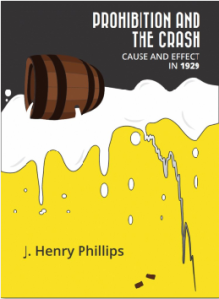Volstead Act Collapse, II-39
 |
| Dry fanatics regarded Prohibition as "the" Constitution (link) |
SEC. 38. The Commissioner of Internal Revenue and the Attorney General of the United States are hereby respectively authorized to appoint and employ such assistants, experts, clerks, and other employees in the District of Columbia or elsewhere, and to purchase such supplies and equipment as they may deem necessary for the enforcement of the provisions of this Act, but such assistants, experts, clerks, and other employees, except such executive officers as may be appointed by the Commissioner or the Attorney General to have immediate direction of the enforcement of the provisions of this Act, and persons authorized to issue permits, and agents and inspectors in the field service, shall be appointed under the rules and regulations prescribed by the Civil Service Act: Provided, That the Commissioner and Attorney General in making such appointments shall give preference to those who have served in the military or naval service in the recent war, if otherwise qualified, and there is hereby authorized to be appropriated, out of any money in the Treasury not otherwise appropriated, such sum as may be required for the enforcement of this Act including personal services in the District of Columbia, and for the fiscal year ending June 30, 1920, there is hereby appropriated, out of any money in the Treasury not otherwise appropriated, the sum of $2,000,000 for the use of the Commissioner of Internal Revenue and $100,000, for the use of the Department of Justice for the enforcement of the provisions of this Act, including personal services in the District of Columbia and necessary printing and binding.
SEC. 39. In all cases wherein the property of any citizen is proceeded against or wherein a judgment affecting it might be rendered, and the citizen is not the one who in person violated the provisions of the law, summons must be issued in due form and served personally, if said person is to be found within the jurisdiction of the court.
* * *
Prohibition was palmed off as the will of the people, eager to have men with guns stop, search, arrest, fine, jail them and confiscate their property--all of this on the understanding that The Economy would benefit from these layers of coercive regulation and enforcement. So why was so much money needed to pay for the deadly force needed to enforce this popular enactment? Gold was $20.67182 per Troy ounce so the enforcement cost then worked out to 101596 Troy ounces of gold, which at $1804.30 each put the initial, hypothetical cost of enforcement at $183 million at today's gold prices. But that wasn't enough to save the economy from sin. Just after the Crash, John J Raskob estimated prohibition enforcement to cost $900 million 1930 dollars. Other sources in 1932 calculated enforcement at 370 million gold dollars or 32 billion of today's gold dollars. The record shows this did the opposite of save the economy.
 |
| This appeared 23FEB1929, not 21FEB (link) |
Meanwhile, European countries desperate for cash to pay World War loan debts and reparations charges could not help but see the line of ships hovering off the U.S. coast as an opportunity to sell other prohibited items for ready cash...
* * *
Find out the juicy details behind the mother of all economic collapses. Prohibition and The Crash–Cause and Effect in 1929 is available in two languages on Amazon Kindle, each at the cost of a pint of craft beer.

Brazilian Sci-fi from 1926 featuring the usual beautiful daughter of a scientist touting prohibition and racial collectivism in America’s Black President 2228 by Monteiro Lobato, translated by J Henry Phillips (link)

Brazilian blog…
American blog…
Tagged: prohibition, confiscation, asset forfeiture, initiation of force, blackouts, energy crisis, liquidation, liquidity, bankruptcy, Crash, Depression, communism, inviting attack, treason, economic collapse,




Comments
Post a Comment